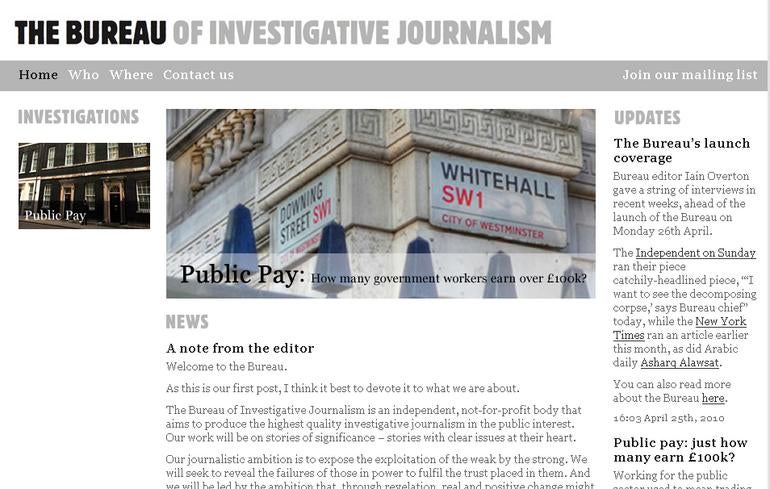
The Bureau of Investigative Journalism has issued an open invitation for journalists with great unpublished stories to pitch them for possible funding.
The Bureau is based at City University and was officially launched yesterday after receiving £2m in funding last year from the Potter Foundation.
It is already conducting investigations in partnership with the British Medical Journal, Channel 4, Al Jazeera English and the Financial Times. And it is in talks with the BBC and The Guardian. Initially the Bureau does not plan to publish its own work.
The Bureau is edited by former More4 News commissioning editor Iain Overton and its other permanent editorial member of staff is lead journalist Angus Stickler, formerly a reporter for Radio 4’s Today Programme.
The Bureau has said it will focus on issues of “governance, probity, corruption and the abuse of power”.
Overton told Press Gazette: “The aim is to be a cross between ProPublica [the US investigative journalism foundation], the Insight team of the 1970s and 1980s and World in Action and the modern day production companies like Quicksilver.”
Overton said he hopes that journalists will come to him with stories which “merit more than one week’s work on and half a page in one of the Sundays”.
He said: “I hope people would email me a one paragraph summary, if I like it they would come in for a longer chat. If the story really stood up to scrutiny than it could be that it would get one month’s worth of initial investigative investment, if that’s still sustained after one month then that could go into a prolonged investigation with a team of other journalists working on it.”
Overton envisages paying rates which are broadly in line with the freelance fees paid by broadcasters: so ranging from the minimum-wage for interns, to £500 a week for a researcher and £1,000 a week for a senior journalist.
He said: “Most major investigations will require a minimum of two full-time staff on that investigation. We hope to have opportunity to do around six major investigations a year, there might be 15 people working at any one time, that might rise to as many as 20 – particularly if they are doing a for-broadcast story so we will have directors coming in, cameramen and editors.”
Overton said he wouldn’t be surprised if some investigations lead to staff positions for the people who bring them in and that he envisages taking people on on nine-month contracts.
He said that he expects the fruits of the bureau’s first investigations to be published some time in the autumn.
An in-depth feature on The Bureau of Investigative Journalism appears in the May edition of Press Gazette magazine.
Subscribe to Press Gazette magazine
Email pged@pressgazette.co.uk to point out mistakes, provide story tips or send in a letter for publication on our "Letters Page" blog
